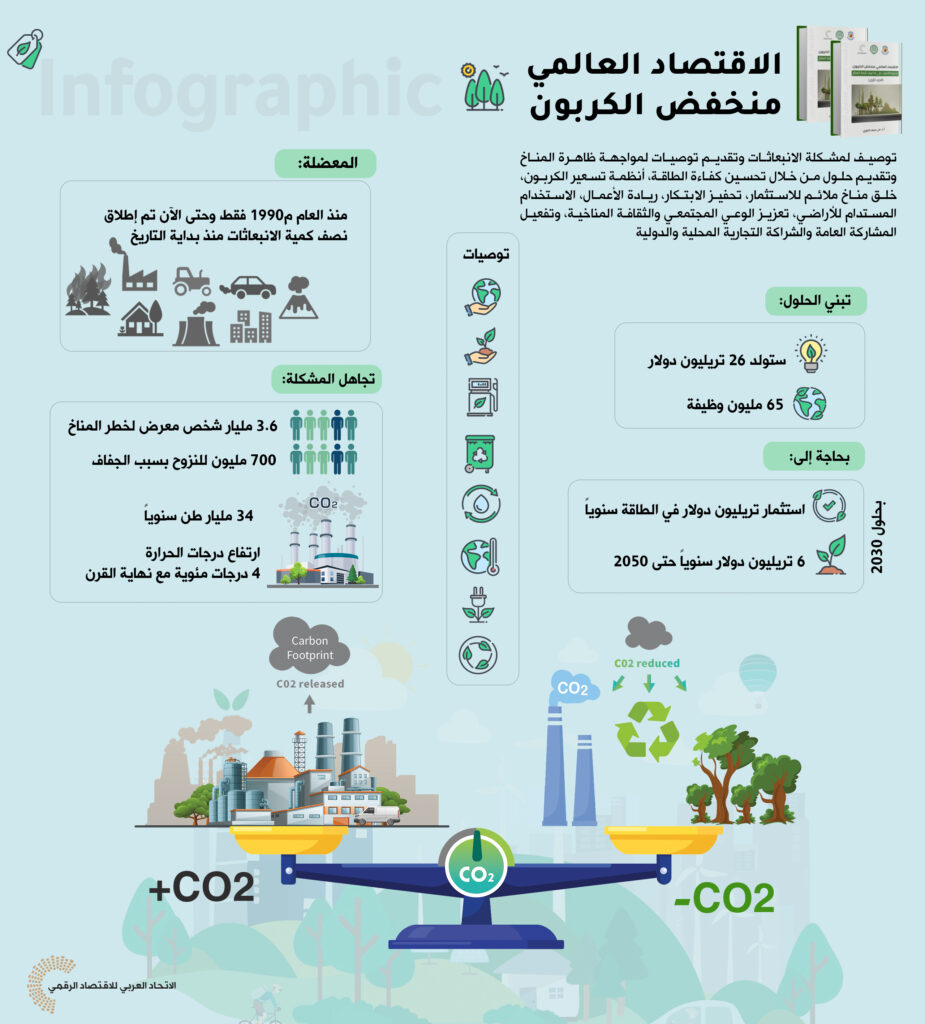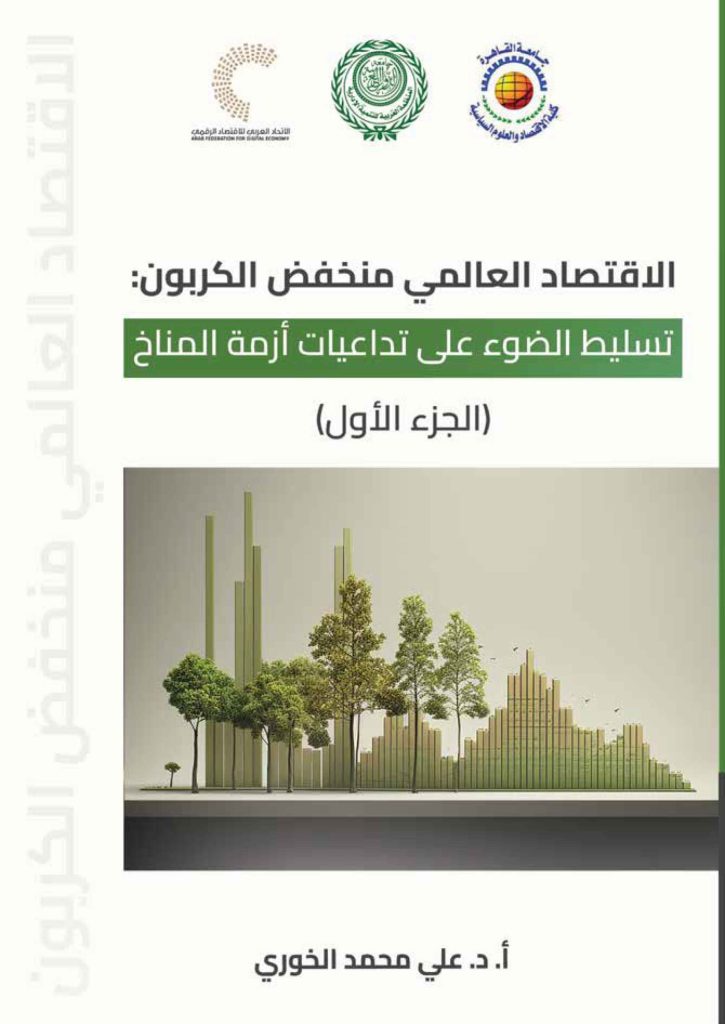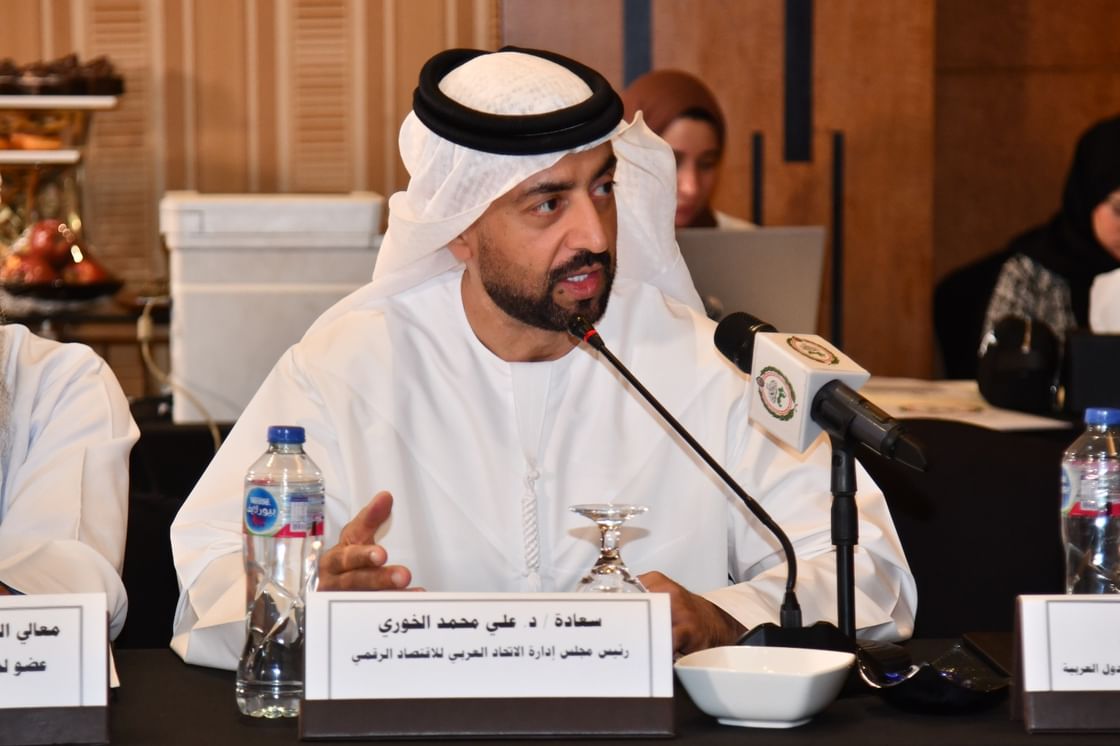
Book Summary:
In its publication (The Low-Carbon Global Economy: Recommendations for Addressing the Implications of the Climate Crisis), the Arab Federation for Digital Economy launches a comprehensive study of global warming and the climate crisis. The first and second parts examine the economic costs of carbon emissions, international agreements and treaties, the changing landscape of the global energy landscape, mechanisms contributing to climate action, climate technology and solutions, the transition to renewable energy sources, and the role of digital technologies in energy management and climate monitoring.
The book features a qualitative research contribution from the Federation’s President and author, Dr. Ali Mohammed Al-Khouri, within the framework of addressing priority strategic issues in the economy and sustainable development regionally, Arab countries, and internationally. Through this book, the Federation seeks to cover the details and implications of these two phenomena and the crisis, engagingly addressing pioneering international projects, innovation and renewable energy paths in Arab countries, and the UAE’s experience in pioneering innovation and sustainability.
As is customary in its publications, the Federation provides descriptions and recommendations for policymakers and decision-makers in the Arab region. These recommendations aim to develop climate-related legislation and public policies, and to formulate executive regulations to build national strategies for achieving sustainable development. The book addresses the mutual impact of all issues that have a mutual impact on climate, such as recommendations for improving energy efficiency, carbon pricing systems, creating a favorable investment climate, stimulating innovation and entrepreneurship, sustainable land use, enhancing community awareness and climate culture, and activating public participation and local and international business partnerships.
Therefore, the book calls for addressing these solutions, which will generate $26 trillion and create 65 million jobs by 2030. This requires investing $1 trillion in energy by 2030 and up to $6 trillion annually by 2050. It demonstrates that delaying the adoption of solutions will leave 3.6 billion people vulnerable to climate change, 700 million displaced by drought by 2030, and will lead to carbon dioxide emissions exceeding 34 billion tons annually. Temperatures could rise by 4 degrees Celsius by the end of the century. In this edition, the Federation adds a new initiative to the dozens of initiatives and programs it has launched, such as the Arab Vision for the Digital Economy, the Arab Digital Food Market, the Arab Incubator for Artificial Intelligence Projects, the Arab Platform for Education and Training, and others. These initiatives aim to support the efforts of Arab and international governments and organizations to transform their societies into a thriving Arab digital economy.
The book also comes months after the UAE hosted the World Government Summit 2024, which brought together leaders of countries, organizations, experts, and future makers in a massive UAE-led effort to discuss the most important current international issues, particularly the climate phenomenon and its implications for restoring life on Earth to normal, and developing sustainable solutions to achieve a low-carbon global economy.
The book, published in the United Arab Emirates, spans 769 pages filled with explanations, figures, tables, data, figures, and images. The Federation has endeavored to monitor and present these in a seamless manner, engaging readers and policymakers alike to present these two phenomena and crises, especially as the world is heading toward a difficult situation due to irresponsible policies in many countries.
The book also represents a significant addition to the Arabic library and digital content, and is an important reference for researchers seeking a comprehensive understanding that meets their ambitions for studying this phenomenon in its various economic fields. It has been published in a digital version, available to those interested in it in accordance with the principles of scientific research.










